- Your cart is empty
- Continue Shopping

Product
Dapsone tablets 100mg contain dapsone, a bacteriostatic sulfone antibiotic, with anti-inflammatory and immunosuppressive properties, that is used to treat leprosy, dermatitis herpetiformis and actinomycotic mycetoma.
Dapsone general information
What is Dapsone used for?
Dapsone tablets 100mg are used to treat leprosy, also known as Hansen’s disease, a bacterial infection caused by a slow-growing bacillus bacterium called Mycobacterium leprae, that attacks the nerves in the hands feet and face causing numbness, loss of feeling and nerve damage, and can result in deformities paralysis, and disabilities in severe cases. Leprosy also attacks the eyes and can cause blindness. Leprosy is spread through coughing or sneezing resulting in the release of bacteria containing droplets in the air which are then inhaled. The first sign of leprosy is numbness and loss of sensation to sensory stimuli (pain, heat, touch). Symptoms include tender thickened nerves, skin lesions which are pale, flat, hairless and dry, loss of eyebrows and eye lashes, skin nodules, ulcers, eye damage, muscle weakness. Leprosy exists in two forms, multibacillary and paucibacillary leprosy and Dapsone tablets 100mg are used for both forms as part of a multiple drug regime to prevent the development of resistant strains.
Dapsone tablets 100mg are also used to treat dermatitis herpetiformis, a chronic autoimmune skin condition caused by a reaction to gluten and linked to coeliac disease. Symptoms include clusters of itchy reddened blisters that resemble herpes and appear on the scalp, shoulders, buttocks, elbows and knees. Dapsone tablets 100mg help control the itching and the spread of the blisters, but will not substitute for a gluten free diet.
Dapsone tablets 100mg are also used to treat actinomycotic mycetoma, a chronic subcutaneous infection caused by aerobic actinomycetic bacteria (actinomycetoma) or fungi (eumycetoma) that live in the soil. The infection usually starts in the foot, where the infectious agent is introduced through a lesion. It first forms a nodule on the foot and then spreads through the tissues as far as the bone. Dapsone tablets 100mg prevent spread of infection.
Dapsone tablets 100mg works through a similar mechanism to treat these three conditions.
How does Dapsone work?
Dapsone tablets 100mg contain dapsone, a sulfone antibiotic, with anti-inflammatory and immunosuppressive properties, that is used to treat leprosy, dermatitis herpetiformis and actinomycotic mycetoma. The anti-infective action of dapsone in Dapsone tablets 100mg is due to blocking the action of dihydrofolate reductase, an enzyme involved in the biosynthesis pathway for folic acid, which is an important metabolite for microbial DNA replication. Inhibition of folic acid synthesis in susceptible organisms does not kill the bacteria (bacteriostatic) or fungus responsible for leprosy or actinomycotic mycetoma but does prevents spread of infection. Dapsone also acts as an anti-inflammatory and immunomodulator, due to its inhibitory action on migration of neutrophils into the site of inflammation and this may suppress production of inflammatory mediators, which relieves symptoms of dermatitis herpetiformis.
What does Dapsone contain?
Dapsone tablets 100mg contain the active ingredient dapsone that is used to treat leprosy, dermatitis herpetiformis and actinomycotic mycetoma. It also contains cornstarch, cellulose, magnesium stearate, silicone dioxide.
Treating leprosy with Dapsone
Dapsone tablets 100mg contain the active ingredient dapsone, a sulfone antibiotic that is used to treat leprosy, an ancient bacterial infection also known as Hansen’s disease. Leprosy is caused by a slow-growing bacillus bacterium called Mycobacterium leprae, that attacks the nerves in the hands feet and face causing numbness, loss of feeling and nerve damage, and can result in deformities paralysis, and disabilities in severe cases. Leprosy also attacks the eyes and can cause blindness. Leprosy is spread through coughing or sneezing resulting in the release of bacteria containing droplets in the air which are then inhaled. The first sign of leprosy is numbness and loss of sensation to sensory stimuli (pain, heat, touch). Symptoms include tender thickened nerves, skin lesions which are pale, flat, hairless and dry, loss of eyebrows and eye lashes, skin nodules, ulcers, eye damage, muscle weakness. Dapsone in Dapsone tablets 100mg is a bacteriostatic and works by blocking the action of dihydrofolate reductase, an enzyme involved in the biosynthesis pathway for folic acid, which is an important metabolite for microbial DNA replication. Inhibition of folic acid synthesis does not kill the bacteria responsible for leprosy but does prevents spread of infection. Leprosy exists in two forms, multibacillary and paucibacillary leprosy and Dapsone tablets 100mg are used for both forms as part of a multiple drug regime to prevent the development of resistant strains.
Dapsone for dermatitis herpetiformis
Dapsone tablets 100mg contain dapsone, a sulfone antibiotic, with anti-inflammatory and immunosuppressive properties, that is used to treat dermatitis herpetiformis, a chronic autoimmune skin condition caused by a reaction to gluten and linked to coeliac disease. Symptoms include clusters of itchy reddened blisters that resemble herpes and appear on the scalp, shoulders, buttocks, elbows and knees. Dapsone tablets 100mg help control the itching and the spread of the blisters, but will not substitute for a gluten free diet. Dapsone in Dapsone tablets 100mg acts as an anti-inflammatory and immunomodulator, due to its inhibitory action on migration of neutrophils into the site of inflammation and this may suppress production of inflammatory mediators, which relieves symptoms of dermatitis herpetiformis.
Dapsone for actinomycotic mycetoma
Dapsone tablets 100mg contain dapsone, a sulfone antibiotic, with anti-inflammatory and immunosuppressive properties, that is used to treat actinomycotic mycetoma, a chronic subcutaneous infection caused by aerobic actinomycetic bacteria (actinomycetoma) or fungi (eumycetoma) that live in the soil. The infection usually starts in the foot, where the infectious agent is introduced through a lesion. It first forms a nodule on the foot and then spreads through the tissues as far as the bone. Dapsone in Dapsone tablets 100mg works by blocking the action of dihydrofolate reductase, an enzyme involved in the biosynthesis pathway for folic acid, which is an important metabolite for microbial DNA replication. Inhibition of folic acid synthesis does not kill the bacteria or fungi responsible for actinomycotic mycetoma but does block their replication, which prevents spread of infection.
What are the side effects of Dapsone?
The most commonly reported side effects when taking Dapsone tablets 100mg include, nausea, vomiting, anorexia headache, dizziness, tachycardia, nervousness, insomnia, and skin disorders.
When should Dapsone not be used?
You should not use Dapsone tablets 100mg if you:
- are allergic to dapsone or any ingredients in Dapsone
- are pregnant or are breastfeeding, without discussion with your doctor
- have kidney or liver disease
- have heart or lung disease
- have anaemia
- are taking medicines that interact with Dapsone including the anti-infective rifampicin, probenecid for gout, chloroquine for malaria, the antibiotic trimethoprim
What medications interact with Dapsone?
Several medications interact with Dapsone tablets 100mg and should either not be taken while you are taking Dapsone or only after discussion and instruction from your doctor:
- Drugs that cause a serious reaction with Dapsone: chloroquine for malaria
- Drugs that affect Dapsone: the anti-infective rifampicin, probenecid for gout, the antibiotic trimethoprim
- Drugs that are affected by Dapsone: the antibiotic trimethoprim
How should Dapsone be taken?
You should take your Dapsone tablets 100mg swallowed whole with a glass of water with or after food. The dose you take and for how long depends on what you are being treated for and your doctor’s recommendation. You should continue to take your Dapsone tablets 100mg for as long as recommended by your doctor which may be several months or years, depending on what you are being treated for.
How long should you take Dapsone?
You should continue to take your Dapsone tablets 100mg for as long as recommended by your doctor which may be several months or years, depending on what you are being treated for.
Missed dose of Dapsone
If you miss a dose of Dapsone tablets 100mg take it as soon as you remember, unless it is time to take the next dose, then skip the missed dose. Do not take a double dose.
How should Dapsone be stored?
You should store your Dapsone tablets 100mg below 25°C in a cool dry place and protect from light.
| # of Tablets | 1000 |
|---|
You must be logged in to post a review.

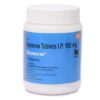
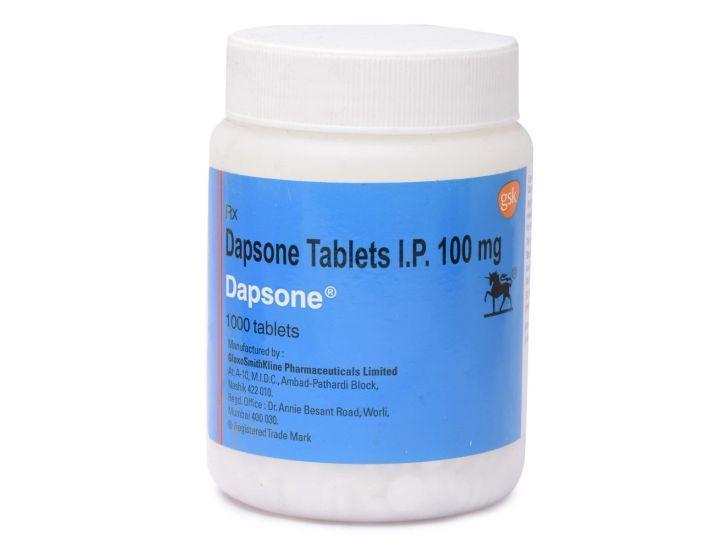
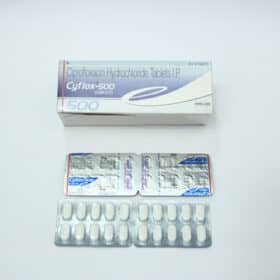
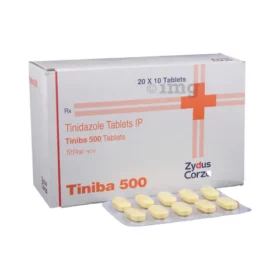
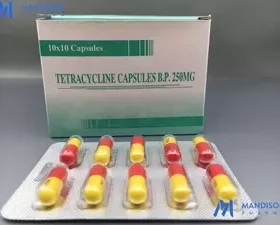
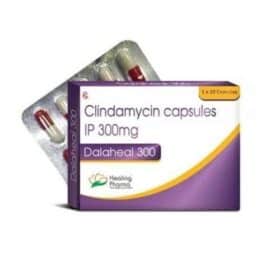
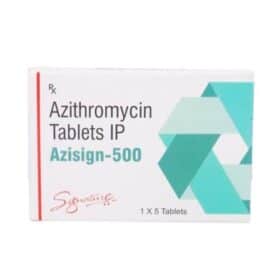
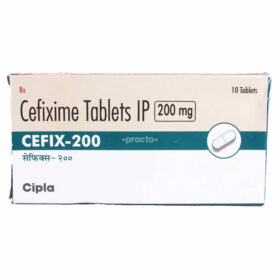
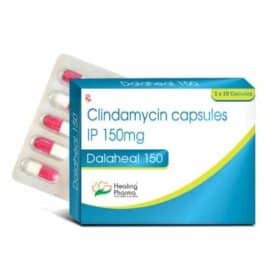
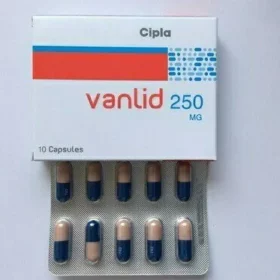
Reviews
There are no reviews yet.